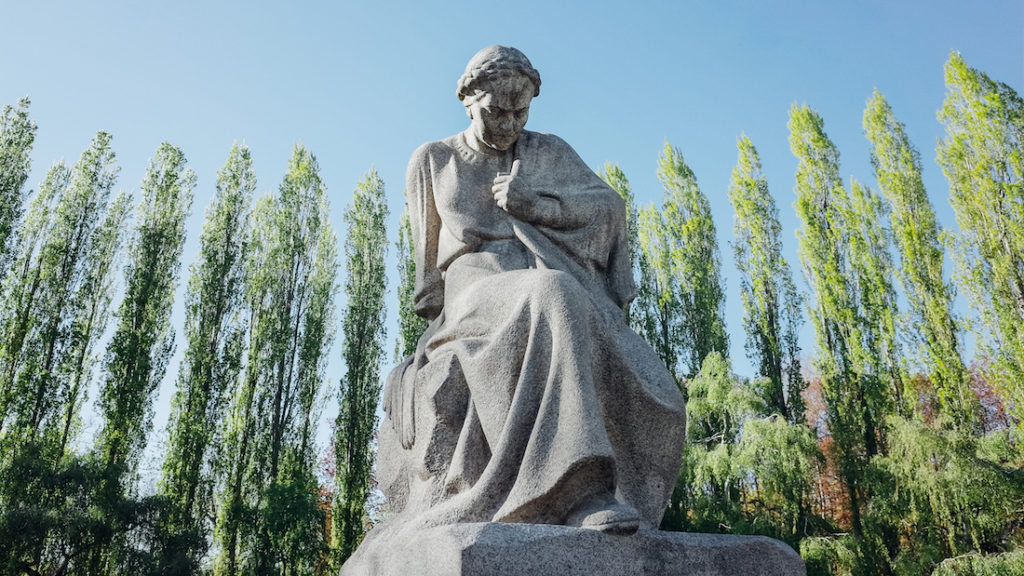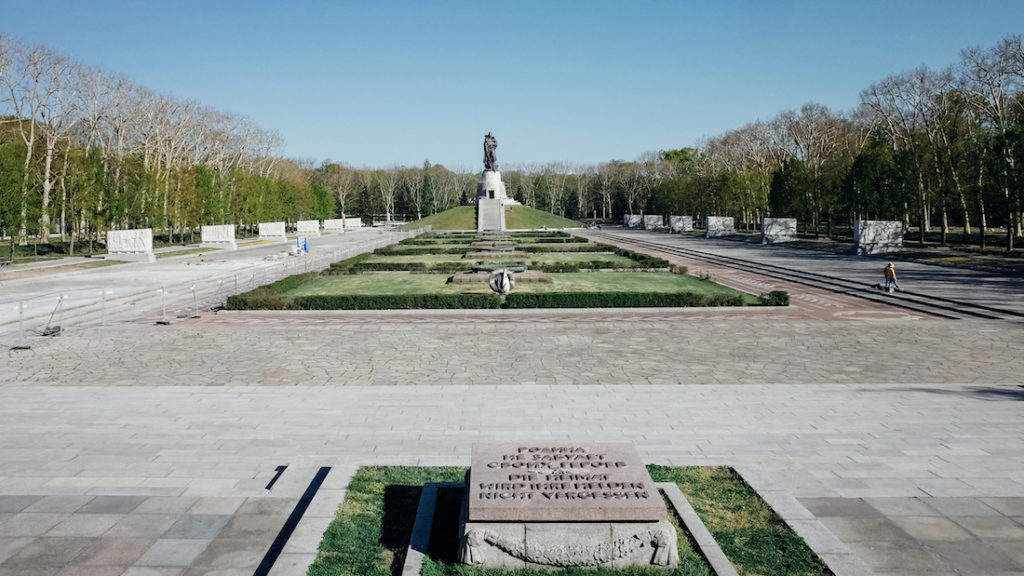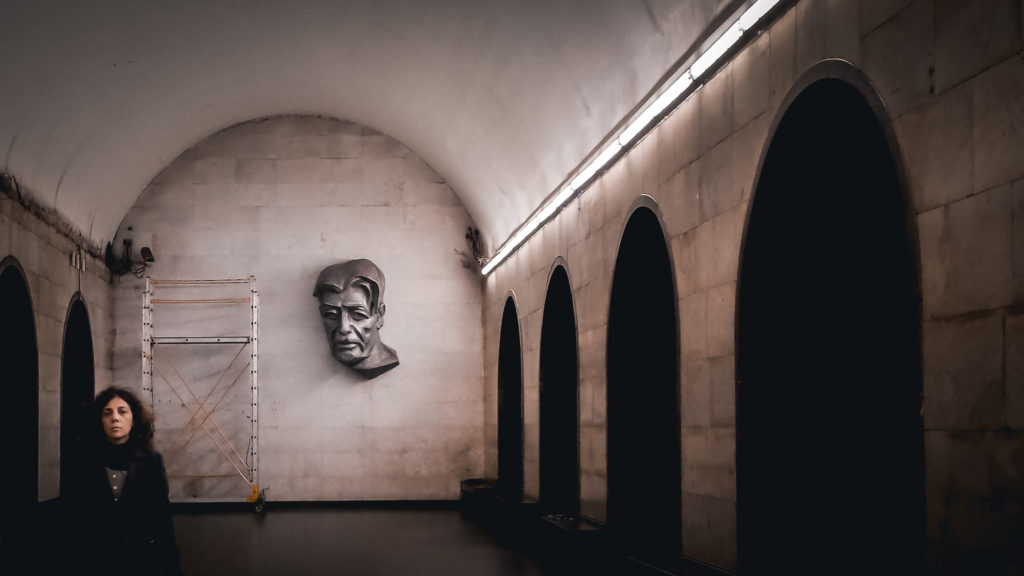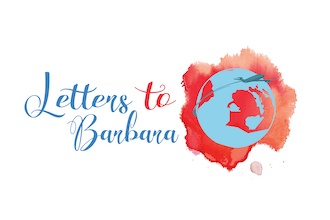April 2020 was probably the longest year of my life. No, that’s not a typo. April was such a stressful and uneventful month due to the Coronavirus outbreak that I honestly would like to delete it from my mind. From the day I started running this travel blog, I promised you one thing: to be always honest. I tried to talk about meaningful travel and to give you reasons for visiting places. But, if I didn’t like something, I wouldn’t hide it either. As you might remember, Santorini is not for me, in Tallinn I had to face a local’s rudeness, and Prague seemed like a playground for mass tourism.
Why am I writing all these? Well, it’s simply because I’m not going to lie about how I feel about the Coronavirus outbreak. I’m one of those people who can’t cope very well with the current situation. Early in March, I decided to cancel all my travel plans. I also decided to spend the quarantine in Berlin and not return to Athens. Even if both decisions were correct, from then on, my mood started to sink. I tried to keep a daily routine: cycling, walking, writing, reading, and watching movies. But it didn’t help. Insecurity stroke me. How could I survive the current crisis? Or, when could I possibly see my family and friends in Athens? No replies.
I never intend to spread negativity, and I always try (even if I sometimes fail) to think a lot before I write. But this doesn’t mean that I’m going to obey to every collective call for happiness. It’s okay to be sad, and it’s okay to feel depressed. One of the things that the Coronavirus outbreak obliged us to do was to pretend we were optimistic. But the tyranny of forced happiness is not for me. Mainstream mass media coerced us in a cocktail of faux-positivity, fear, and guilt. Apparently, if you didn’t share this attitude, you had to be kicked out of the party. Sorry, I’m out of this. I prefer scientific facts and not guided terror; I prefer diving into my personal feelings instead of wearing the armor of a collective mindset.
Personal questions challenge our minds, but collective questions challenge our ethics. As a person relying on traveling for earning a living, I started thinking even more about meaningful travel. The term might sound rather vague, and you might confuse it with sustainable traveling. There’s indeed a fine line connecting them. But since the Coronavirus reshapes the world (no, it’s not the end of the world as we know it), we need to talk about meaningful travel while doing some introspection.
On meaningful travel

First of all, let me say that: by meaningful travel, I don’t just mean sustainable tourism. Being sustainable as a traveler is always one of my goals, and I think that more and more people are slowly embracing the concept. Some of the basics of sustainable traveling are known: from reducing our carbon footprint to supporting local economies and from respecting the locals to showing social responsibility at all times. All these things -and a bunch of others that will find a place in another article- are equally important. But here’s the thing: all of these require that we are already visiting a foreign place.
However, what I want to say with meaningful travel is something different. It’s actually our attitude and responsibility before going on a journey. In other words, to analyze our wanderlust and itchy feet and understand why we want to travel. Or even why we should travel. Going on a trip out of curiosity while we intend to support the local economy as an exchange for our visit is a noble act, but it might not be enough in the years to come. That’s not just because of the virus; it’s mainly because of environmental issues.
I’m rather convinced that we should think about our concept of traveling not only while being on the road but also before leaving home. I talked earlier about the armor of a collective mindset that we were forced to wear during the outbreak. But here it’s all about our personal mindset. The more we dive into ourselves, the more questions we’ll face. Why do we really travel nowadays? Is it to feed our curiosity? Is it for the sake of adventure and travel experiences? Or is it for the vanity of a selfie in front of a landmark? On the other hand, who are we when we return home? Are we still the same people, or did we manage to dump some of our prejudices?
The list of questions is (or: should be) long. Contrary to the common belief, a traveler shapes his/her mindset more when he/she is at home. No, we don’t need a state or a trip-police to tell us when to travel or not. Non-essential travels have been demonized in the Coronavirus era. But it’s because of non-essential travels that we have poets and travel writers. Can you imagine Patrick Leigh Fermor walking from London to Istanbul if non-essential travel was banned? Of course, not every non-essential trip is worth to be taken. Fermor had a goal in his mind, and that’s what we have to do too.
Meaningful travel describes for me the journeys we take due to the curiosity of a hungry mind. The journeys that we have to take because imagining them keeps us awake at night. I’m not against leisure journeys or tourism: on the contrary, I’ll stand up for them as well. It’s our right to spend our time and money the way we want. Cheap international flights somehow democratized traveling, and this is a privilege we shall not abolish. To be honest, I find much of the business travel to be more non-essential anyway. And I truly wonder if we need all these conferences as well.
But we also need to think more and protect the environment. I’m not against airplanes; I actually love them. I’m not one of those guys that want them grounded. I don’t think that we should kill innovation, but we have to make it more sustainable. And then, we have to think about what travel experience really is. Do we really need a two-days business trip instead of a few video calls? Is it really a reason to travel for a new Facebook profile picture? After all, do we travel in order to brag online and offline? We travel because we need it or we go places because everybody around us does it?
Deep in its ugly heart, the Coronavirus is an environmental issue. Its parents are climate change and globalization. It caused an unprecedented crisis, but it was not a totally unforeseen one. Mankind faces -statistically- a widespread pandemic one-two times per century. It’s not that we didn’t see this one coming. We just didn’t know when it’ll happen and how it will affect us. It did, unfortunately, in the worst way: with death and terror.
It’s not the end of the world as we know it

Whenever an incident is affecting multiple countries, humanity tends to exaggerate. We keep listening to phrases like “the end of the world as we know it,” “nothing will be the same anymore,” “this will be the post-X-Event world.” In fact, the opposite usually happens: not that many things change. Sure, there are tweaks here and there, some new definitions, a couple of extra details. The truth is though that humanity proved to be really slow in changes. It takes decades and generations for things to change even regionally -let alone globally.
For example, we heard the same thing after 9/11. Supposedly, this was also the end of the world as we knew it. Such a dramatic statement would mean a radical and sudden change of at least one collective habit. Therefore, we should expect no airplane travel after 9/11. Yes, that would be a radical change in the world as we knew it. Almost two decades after 9/11 and before the deadly virus, the airline industry was at its peak. Sure, some things changed: security measures at the airports, decline in airplane services, less respect for personal data. The world is constantly reshaping, and it’s currently moving towards a totalitarian version. But it never changed that fast.
Usually, the preachers of these pompous quotes are the ones that fear for themselves and the positions they hold (politicians, media, corporations, etc.). They are the ones that they might lose power and privileges during crises. But to what extent the life of the homeless really changes after major or historical events? How is life in a rural, remote area changing for its inhabitants? Of course, everyone is affected but never to the extent of “the end of the world as we know it.” This is a biased viewpoint (call it a handy narrative) of globalization. So far, to me, the so-called globalization is more of suburbanization: we extend the mega-centers, but we don’t offer better living and conditions to the whole world. To globalize should mean to share; instead, we extend the problems, and we just outsource.
Even the social distancing concept is not that new either. Social media created social distancing long before the term was connected to the virus. We’d hang out less with our friends, we’d use technology as a middleman of communication, we’d video-call, text all night long instead of meeting and we even have virtual sex. What hurts us right now is that we don’t have the freedom of choice: we can’t decide if we’ll chat in Whatsapp groups all night long or if we’ll go out in a bar. However, social distancing was here before the Coronavirus, and that’s probably why it was relatively easy to implement it.
A proposal for meaningful travel when the virus dies

I’m not happy the way I live right now, and I don’t want to make things sound nice. I can’t see my friends, I struggle to earn a living, and my work motivation is below zero. And yet, here I am, doing the things that I’ve been doing for almost two decades: writing and reading. All forecasts and predictions are destined to fail, but I dare to say that: I believe that there will be no vaccine for the Coronavirus because in between the virus will die by itself. The plan seems to be herd immunity. From what I read so far, there was no vaccine for any Coronavirus in the past. After an initial crash test of two months, that affected the economy and educated us in a new reality, we will have to live with the Coronavirus until it disappears.
And yet, we have to remain somehow optimistic that this will come to an end because that’s how evolution works. In the hard months (or even years) to come, we will have to keep our humanism and carry on living. I don’t know if Xennial travelers are more pessimistic than others, but we should all find a way to keep on dreaming. Sometimes, late at night, I try to daydream of the first trip after the outbreak. It has to be a meaningful journey. I have different versions of it in my mind, and I wonder where it should be. I try to portray myself in distant places. Soon, I fail, and I fall asleep.
But what I’d like to see after this crisis is less traveling out of vanity and, instead, more purposeful trips. I do believe that vanity-journeys are not transforming us, and they only sharpen our narcissism. In my opinion, moving geographically is not a proper journey if an inner trip does not accompany it. I don’t want to manipulate anyone -I don’t have the power anyway nor the will- and I don’t want to guide you. But I’d love to see each one of us traveling for a purpose that it will transform us to better versions of ourselves, reversing at the same time the totalitarian turn the world has taken.
***
What’s new on the blog – Recap 19
After a tough March, April turned out to be even tougher. As you can imagine, running a travel blog in times of closed borders and travel bans might sound ironic. In fact, it’s pretty hard to keep the work on track. I tried to write every day, against the odds, mainly to keep myself sane. No need to tell you, of course, that the traffic of every travel blog out there is in a historical low, and the income from affiliate marketing or ads has vanished into thin air. No matter what, writing articles was, for me, the only way to keep myself sane.
So, at the beginning of April, I uploaded last month’s recap, dealing with Admiralbrücke in Berlin. This bridge is a local hangout but lately, it seems rather empty. I tried to understand the so-called Zeitgeist (the spirit of the era) by crossing every day that bridge. You can read about the Zeitgeist of Berlin here.
In April, I also decided to write two long posts that I postponed for months. The first one was a long Bluehost Review, which is the web hosting company that I use for running my blog. This was, of course, not a sponsored post, but here’s the thing: in these dark days we are living, a couple of people wrote me that they were thinking of starting a blog. In the darkest days, some rare opportunities indeed appear, and starting something of your own is always a good idea. So, finding a reliable web hosting provider is probably the most important thing after good content. You can read my review here -and you’ll also find an offer of up to 60% off on every Bluehost plan.
The second guide I wrote this month was about Crete, the famous Greek island. I never wrote about Crete (I explain why in the text), even though I always wanted to. I thought that the timing was right though: with the virus still around us, early summer vacations are probably out of the question. But Crete is one of these few places in Europe that enjoy warm weather until late October (or even mid-November), and maybe it’s a good option for a late adventure this year. There are also 25 photos in the Crete guide to tempt you –read everything about Crete here.
In late April, I also finished my Coronavirus Chronicles. I have promised myself to write this Corona-diary until the day that the first bans will be lifted. And that’s what I did. For more than five weeks, I kept writing the Chronicles. I tried to add every day a new entry, but in the end, I started running out of steam. Nonetheless, it turned out to an almost 10,000-words article. There’s an index at the beginning of it too, so you can navigate much easier to what you find interesting. You can read the Corona-diary here.
Last but not least, this month, I posted a Polaroid Diary entry after a long time. It’s been a while since I traveled to Kyiv, but I somehow never posted my polaroids from the capital of Ukraine. So, here you can see my polaroids from Kyiv together with some extra info about the city.
So, that’s it with this month’s recap and my article about meaningful travel. Before finishing this recap, I’d like to tell you that I’m planning to update all my Greek guides. The reason is that this summer will be an odd one due to the Coronavirus, and Greece might be one of the few options you’ll have for a short vacation. By the end of May, all the Greek guides will reflect current changes and info. But I’ll write more about it in the next month’s recap. Till then, stay safe and healthy.
You can access my previous travel & street photography recaps by clicking here.
*Get my FREE Travel Writing Course*
Buy the camera I use | Book your hotel
Please share, tweet, and pin if you enjoyed reading We need to talk about meaningful travel – Recap 19. Your support keeps this website running and all the info up-to-date.
Last Updated on June 13, 2020 by George Pavlopoulos

Hi George, I have been to Santorini twice and think it is easily one of the best Greek islands. The views are spectacular! I dream about visiting Santorini again, maybe you should give it another go. I have to say though you do need to stay somewhere where there is a great pool as the beaches are quite poor. Santorini also has a public pool high up on the caldera which actually looks quite good. I would have checked it out myself had I known about it. I think meaningful travel can always disappoint. I visited Israel and was blasted in front of my tour group by the tour guide at a religious site for wearing shorts and a tank top on a very hot day. On top of that he screamed out that someone could even spit on me for my lack of respect. This turned out to be my top memory of this very memorable trip. That is the sort of thing meaningful travel can lead to. John
Hey there John,
Yes, Santorini is indeed spectacular. The landscape is truly unique, and my complaints are mainly directed to mass tourism and the bland atmosphere of the island. Once again: the landscape of Santorini is stunning, but it’s everything else that ruins the place for me.
Regarding the meaningful journeys, well, as long as there is interaction, there will be such incidents. I had countless incidents myself while traveling, but they didn’t stop me from going places. What I meant by meaningful journeys was mainly a change in our attitude towards traveling. This, of course, doesn’t mean that we won’t meet people with other thoughts in their minds. In your case, he should definitely inform you about the regulations -we are foreigners, and we can’t know everything. Screaming and insulting is for sure something unacceptable.
Take care,
George
Hey, George, great article again! 🙂 I was so impressed that you kept publishing during the lockdown. And it’s interesting to know the inner struggle that was behind that. I was feeling guilty for falling into a slight depressed state. Since I had all the conditions to be productive 🙂
Hey, Valentina! Ah, tell me about the “slight depressed state”: I’ve been in this sort of state for the whole quarantine period. I thought that the only way to keep myself sane during the Coronavirus Outbreak was to keep on writing and publishing. I think it helped me a lot, but the inner struggle was omnipresent. I hope that we won’t have to go through such a thing again. How do you cope with the situation?
Take care,
George
Yes, I am doing better now psychologically. I think overall people are more relaxed on the street as well, less anxiety.
That’s good to hear. Yes, I also observe the same thing on this side of Berlin. Anxiety is almost gone and some sort of normal life is returning to Berlin…
I too have been struggling during the COVID isolation. Some days are good and some days are bad. It is tough as a travel blogger to keep writing travel content honestly! Thanks for being so open and honest about your experiences.
Hello Maria,
Thanks for stopping by. Indeed running a travel blog during the Covid pandemic is pretty tough. I’ve been struggling a lot in the previous months, and I’m still holding my breath for this horrible thing to be over. Carry on writing -and we can all hopefully travel soon again.
All the best,
George